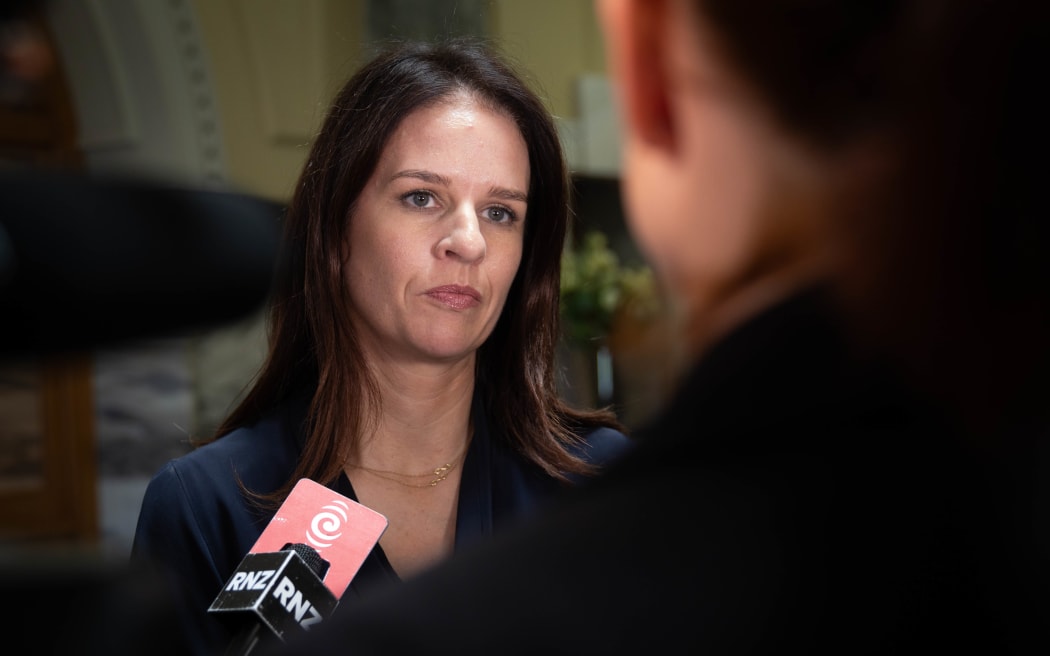
Education minister Erica Stanford says the new priorities for the system will result in an education system where all students were getting quality learning. Photo: RNZ / Angus Dreaver
New education priorities announced by the government today will put "ambition, achievement and outcomes" at the heart of the system, the education minister says.
Erica Stanford unveiled the six education priorities this afternoon.
In a statement, Stanford said she wanted "every child to be inspired and engaged in their learning so they can achieve to the best of their ability and gain skills and qualifications that will support them into further study and employment".
The new education priorities are:
- Clearer curriculum: Establishing a knowledge-rich curriculum grounded in the science of learning
- Better approach to literacy and numeracy: Implementing evidence-based instruction in early literacy and mathematics
- Smarter assessment and reporting: Implementing consistent modes of monitoring student progress and achievement
- Improved teacher training: Developing the workforce of the future, including leadership development pathways
- Stronger learning support: Targeting effective learning support interventions for students with additional needs
- Greater use of data: Using data and evidence to drive consistent improvement in achievement
Stanford said the first work programme to achieve these goals would be announced later this week.
The initial focus would be on "enhancing achievement, attendance, engagement", but the goal was an education system where all students were getting quality learning, she said.
The government has also set a target to reach 80 percent of Year 8 students at or above the expected curriculum level for their age in reading, writing and maths by the end of 2030.
Stanford also said she intended to work collaboratively with Māori education organisations to develop a Māori education work programme.
However, the Post Primary Teachers Association said the priorities would be meaningless if schools did not have enough teachers.
A survey earlier this year found 56 percent of schools had teachers working in areas in which they were not qualified to teach.
That was the highest figure the regular survey had recorded, the union said.
Secondary principals had warned repeatedly that they could find enough good quality teachers to staff their classrooms, and addressing the shortage should be the government's top priority, the union said.





